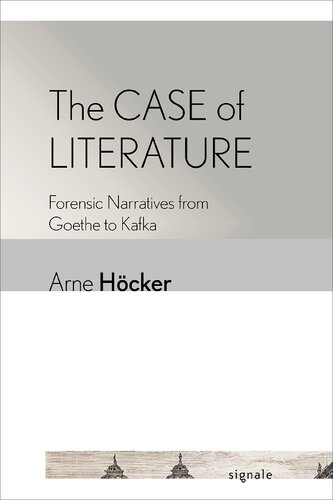

Most ebook files are in PDF format, so you can easily read them using various software such as Foxit Reader or directly on the Google Chrome browser.
Some ebook files are released by publishers in other formats such as .awz, .mobi, .epub, .fb2, etc. You may need to install specific software to read these formats on mobile/PC, such as Calibre.
Please read the tutorial at this link: https://ebookbell.com/faq
We offer FREE conversion to the popular formats you request; however, this may take some time. Therefore, right after payment, please email us, and we will try to provide the service as quickly as possible.
For some exceptional file formats or broken links (if any), please refrain from opening any disputes. Instead, email us first, and we will try to assist within a maximum of 6 hours.
EbookBell Team

5.0
98 reviewsIn The Case of Literature, Arne Höcker offers a radical reassessment of the modern European literary canon. His reinterpretations of Goethe, Schiller, Büchner, Döblin, Musil, and Kafka show how literary and scientific narratives have determined each other over the past three centuries, and he argues that modern literature not only contributed to the development of the human sciences but also established itself as the privileged medium for a modern style of case-based reasoning.
The Case of Literature deftly traces the role of narrative fiction in relation to the scientific knowledge of the individual from eighteenth-century psychology and pedagogy to nineteenth-century sexology and criminology to twentieth-century psychoanalysis. Höcker demonstrates how modern authors consciously engaged casuistic forms of writing to arrive at new understandings of literary discourse that correspond to major historical transformations in the function of fiction. He argues for the centrality of literature to changes in the conceptions of psychological knowledge production around 1800; legal responsibility and institutionalized forms of decision-making throughout the nineteenth century; and literature's own realist demands in the early twentieth century.